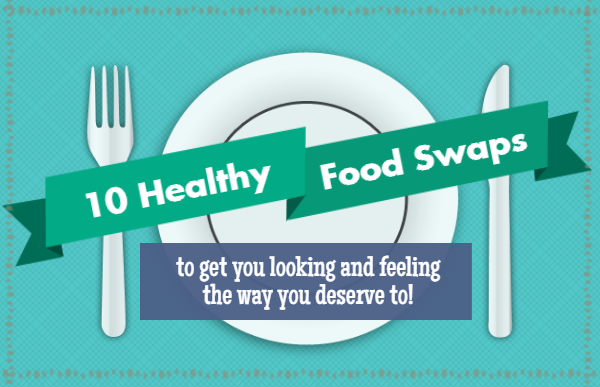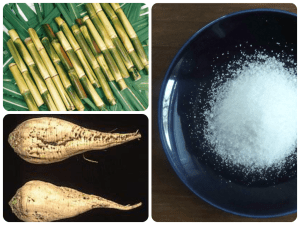Is Sugar a Drug?
Although there are varying degrees to what one might describe a “healthy” lifestyle as being, I’d say most everyone can agree that drug use does not fall into this category. Drugs, and the addictions that often accompany them, can blow in like an unexpected storm, wreaking havoc on the bodies of those who abuse them and the lives of anyone in the destruction’s path. While the initial participation in these substances is often a choice, we’ve come to understand that the mechanism keeping a user coming back for more is based on simple biology.
The chemicals in drugs activate the reward center of our brains, releasing a powerful surge of dopamine and producing a euphoric “high” that drug users will repeatedly seek out. The speed at which the dopamine is released, as well as the concentration of the substance, will determine how addictive the drug will be on the user. Although we tend to think about drugs in their chemical composition, many actually have origins that are found in nature. Cocaine is one such example.
Cocaine is derived from the coca leaf, a plant that grows naturally in the warm, sunny climate of South America. In their unprocessed form, coca leaves provide a mild stimulant, similar to the caffeine found in coffee beans. For centuries, Bolivians have practiced the custom of chewing the leaves, or brewing them into a tea, for the same reasons we consume caffeine today.
The cocaine that we know today is a concentration of the naturally occurring alkaloids found in these leaves. To obtain the highly addictive street drug, the coca leaves are dried, processed into a paste, and the paste is further processed to separate the extracted alkaloid from the vegetable matter. It is only when this naturally occurring compound is isolated and extracted from its whole food form that dangerous addictions can be formed.
While it might seem senseless for our bodies to biologically become addicted to destructive substances, this design originally had our best intentions in mind. Our brains’ reward center encourages us to do the things we need to survive and reproduce (eat and have sex). In times when food was scarce, our sweet receptors evolved to shout loudly “HEY THAT SWEET STUFF IS FULL OF ENERGY EAT MORE NOW!”. But our ancestors weren’t fueling their bodies with Dixie Crystals, just as ancient Bolivians weren’t snorting lines of powdered cocaine.
The white, sandy sugar that we now consume 130 pounds of each year (per person!) isn’t found lining tropical shores somewhere. The sweet stuff, also known as sucrose, begins its journey locked inside the humble walls of the sugarcane and sugar beet. In order to obtain crystallized sugar, these crops must be heavily processed to extract the sucrose from the remaining vegetable matter. (sound familiar?)
The sugars found naturally in fruits and vegetables come as a package deal, together with vitamins, minerals, enzymes, and fiber. These other nutrients not only slow down the rate that sugars enter our bloodstream, but they are also a non-negotiable requirement for our bodies to break down and use the stuff. In other words, whole foods contain the full spectrum of nutrients required for digesting sugars. When we isolate and extract the sugar from these whole foods, our bodies are forced to use their own stores of vitamins, minerals and enzymes. This means that consuming sugar effectively acts as an anti-nutrient, robbing the body of its own nutrient stores.
Is sugar a drug?
These isolated, concentrated sugar molecules react in our bodies in ways similar to other drugs, giving us a ‘quick hit’ and lighting up our brains’ reward center. In fact, sugar induces the same reaction, and activates the brain in a similar manner, as cocaine and morphine. Even more so, studies have found. After feeding study rats Oreos, brain scan images showed that they had higher cellular activity in the pleasure center than when they were injected with cocaine and/or morphine.
So when someone claims they are “addicted” to sugar, its not really that much of an exaggeration. Just as with other drugs, a biological dependence on sugar has the ability to override willpower and self-control mechanisms. When someone who regularly consumes the stuff tries to quit it, they will experience withdrawal symptoms not unlike those felt by nicotine, cocaine, and morphine addicts.
For too long we have been advised to consume sugar in moderation, believing that with enough physical activity the calories would effectively be burned off. But just because something isn’t making you fat doesn’t mean it’s not doing terrible things to your insides. Nutrition expert JJ Virgin captured this concept beautifully when she said, “your body is a chemistry lab, not a bank account”. Natural sugars in their whole food form have a definite place in our diets and in our bodies. When we manipulate the package sent to us by mother nature, however, we’re really only asking for trouble.
Sources: Natasha Campbell Mcbride, Gut and Psychology Syndrome






Leave a Reply